In the Nephrology and Urology Veterinary Field, NC State Leading the Way
Dr. Autumn Harris and Dr. Jiwoong Her have joined the NC State College of Veterinary Medicine faculty, specializing in treating and researching diseases of the kidneys and urinary tract.
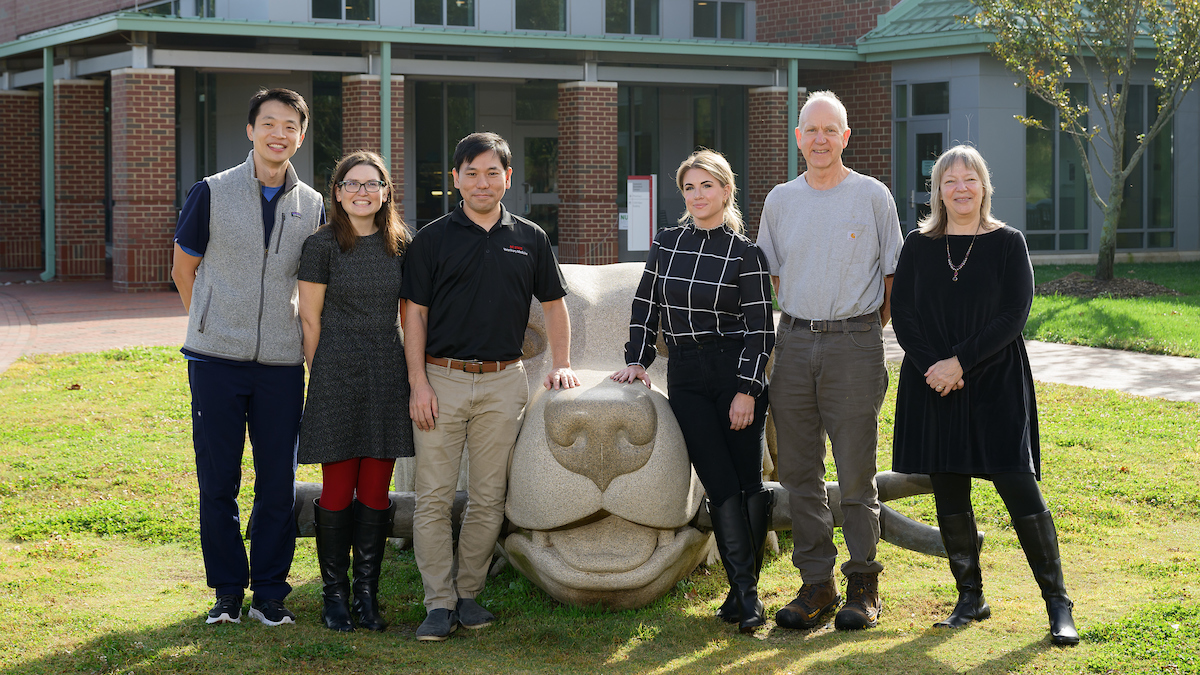
With the addition of two associate professors this year, the NC State College of Veterinary Medicine has the largest number of faculty members in the country who are affiliated with the new American College of Veterinary Nephrology and Urology, with six faculty members dedicated to the increasingly specialized field.
Dr. Autumn Harris, an established researcher in the causes of kidney failure, joined faculty members Dr. Shelly Vaden, professor, and Dr. Allison Kendall, associate clinical professor, in August as board-certified in internal medicine. Also in August, Dr. Jiwoong Her, associate professor of small animal emergency and critical care at the Ohio State University, joined faculty members Dr. Bernie Hansen, associate professor, and Dr. Yu Ueda, associate clinical professor, as board-certified in critical and emergency care.
“This investment in these top-notch doctors gives us a greater critical mass to lead the way and help innovate the field of nephrology and urology,” says Vaden, who will be president of the American College of Veterinary Nephrology and Urology in January. “It also allows us to train more people to help grow the specialty. Training residents just makes the day so much brighter, working with these young people who really want to learn more and take what they’re mastering to other parts of the world.”
The AVMA American Board of Veterinary Specialties gave provisional approval in 2022 to elevate nephrology and urology from a focus area to a college. Vaden and Hansen were chosen as founders of the new American College of Veterinary Nephrology and Urology and are working to create the internal structures and licensing exams that will allow veterinarians to become certified in the field. Harris, Her, Kendall and Ueda are all completing residencies at NC State through the ACVNU.
“Once we have people who are certified in veterinary nephrology and urology, the public will be able to identify people who have completed advanced training in the field. The veterinarian will know that if they have a complex case, that is who they should send it to.,” Vaden says. “We’ve advanced so much in how we’re treating these diseases that many of these cases require more expertise.”
Vaden credits Dr. Kate Meurs, the Randall B. Terry Jr. dean of the NC State College of Veterinary Medicine, for having the vision to put more resources into a field where improvements in the research and understanding of urinary diseases have led to innovations in diagnostic methods and disease management.
“One of her goals is innovation, and she knows growing our service is going to lead to breakthroughs in science and client care,” Vaden says. “She’s a cardiologist, and she remembers when cardiology was part of internal medicine, before they developed their own college. She sees our situation is very similar to that, and she’s been 100% supportive.”
Thirty years ago, general veterinarians might have performed echocardiograms on a cat, Vaden says, but now they would send their clients to cardiologists, who have specific expertise in heart conditions. Similarly, advancements in nephrology and urology have led to more specialized treatments that require trained veterinarians to administer, Vaden says.
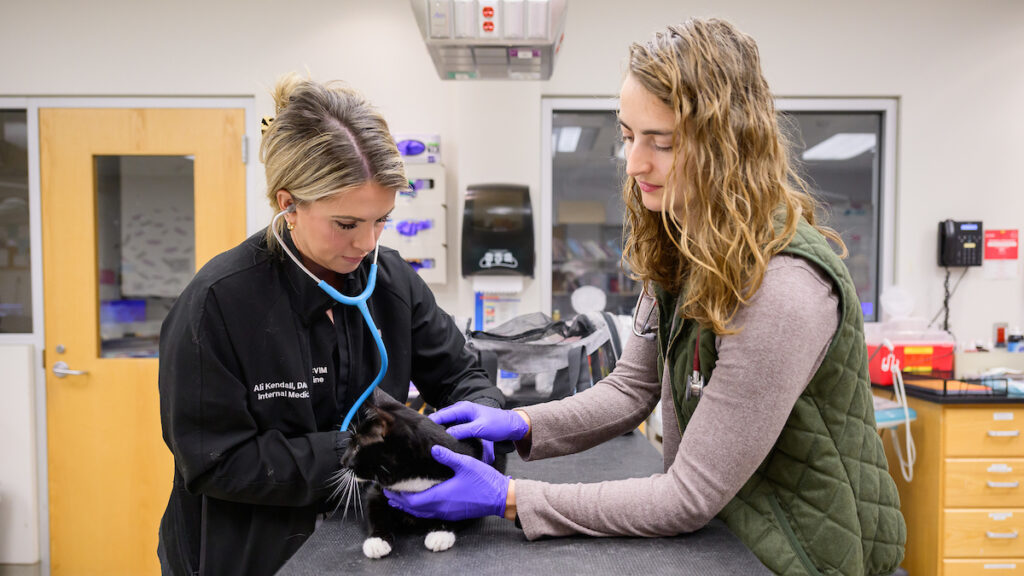
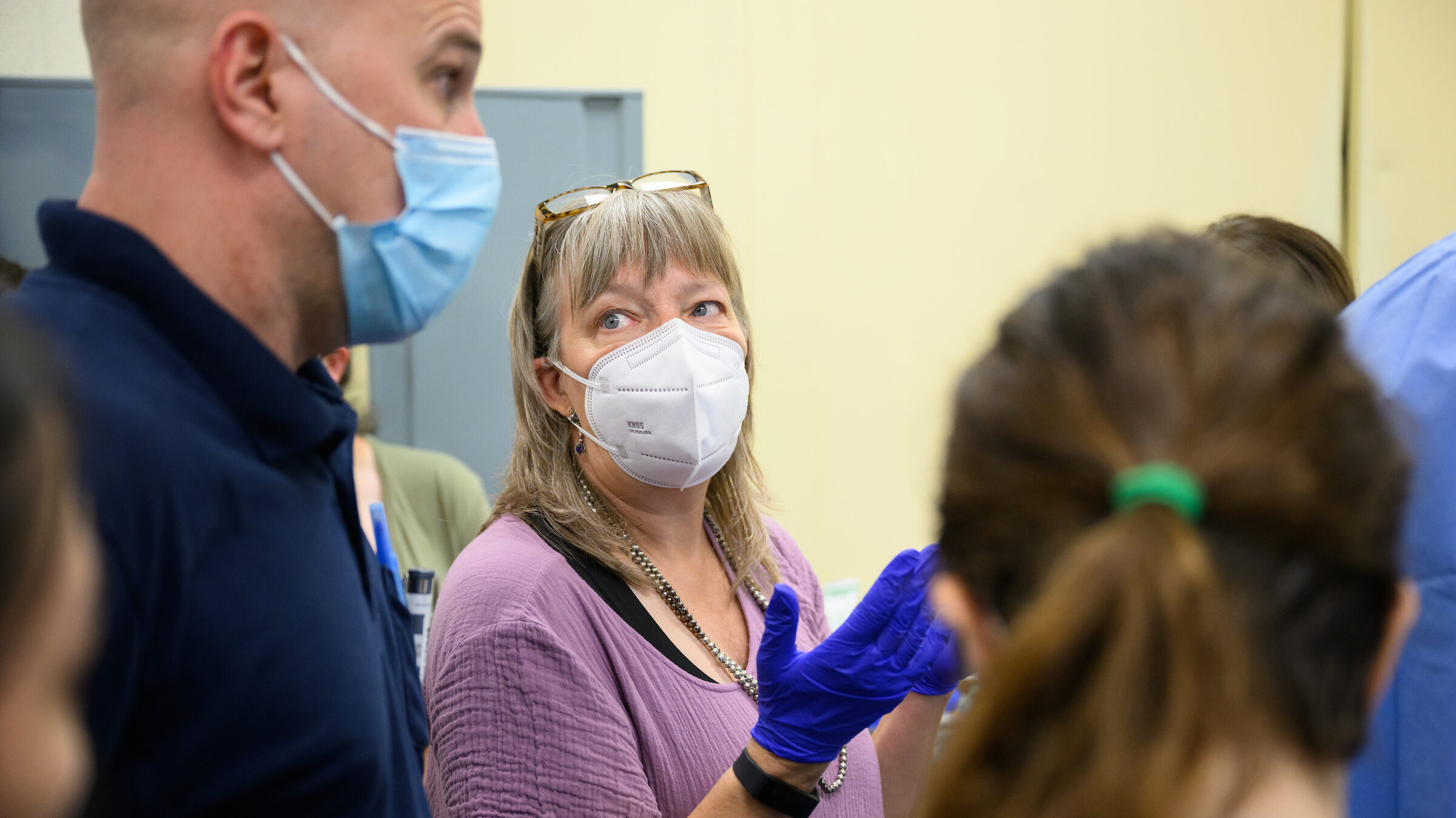
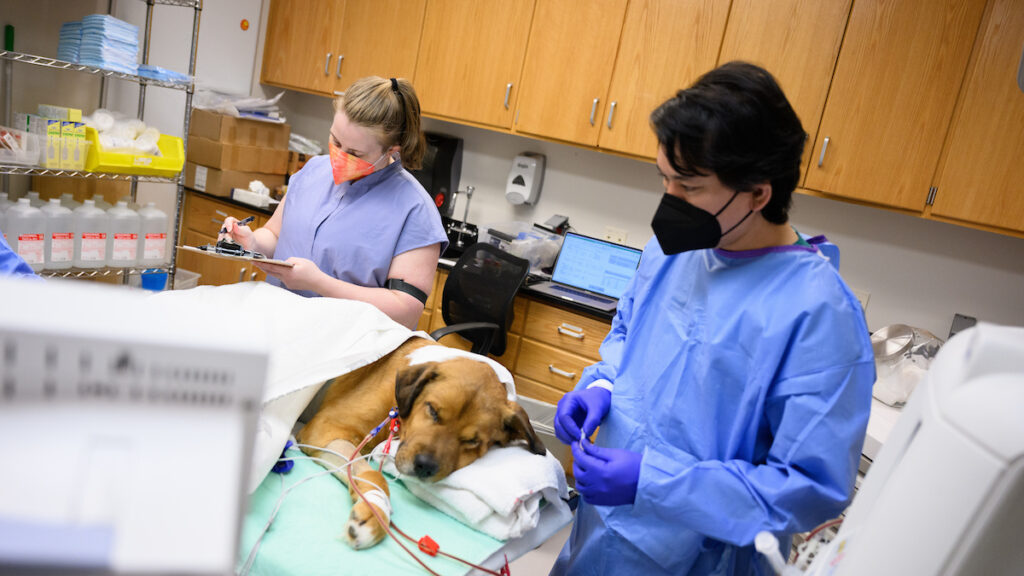
The members of the Nephrology and Urology Service at NC State can perform complex procedures such as ectopic ureter ablation, bladder stone retrieval without surgery, renal hematuria treatment, and urethral and ureteral obstruction management, including trans-urethral resection of bladder tumors.
In addition, they offer extracorporeal therapy to dogs and cats, including hemodialysis, hemoadsorption and apheresis for the management of renal failure, immune mediated diseases or toxicity. NC State is the only veterinary facility between Washington, D.C., and Florida that offers all types of extracorporeal therapy, which are often essential in various emergency situations.
Just this month, the family of a great Pyrenees that consumed something toxic drove five hours overnight from Charleston, South Carolina, to the NC State College of Veterinary Medicine so the dog could receive life-saving therapeutic plasma exchange, says Ueda, associate professor of emergency and critical care and director of the extracorporeal therapy service.
“Our team offers unique procedures, including extracorporeal therapy and specialized urological treatments, which aren’t available at other referral hospitals in this region, and clients often come from other cities and states to access our services,” Ueda says, “Each of us brings a distinct background, whether it’s in internal medicine or emergency and critical care, which makes our service even stronger.”
Leading researchers, too
Besides providing excellent care to clients at the NC State Veterinary Hospital and training fourth-year veterinary students, residents and fellows in nephrology and urology, the faculty members also are leading advancements in research.
Harris is conducting research focused on improving veterinary medicine’s understanding of kidney failure, with particular focus on acid-base balance to optimize medical treatments for pets affected with the common disease.
Vaden has several studies in progress, including on how to improve the management of urothelial carcinoma in dogs and chronic kidney disease in cats.
Kendall has been the lead on groundbreaking research at NC State on Feline Idiopathic Cystitis, finding last year that low-dose radiation therapy on the bladder can relieve the condition’s painful symptoms and possibly even cure it. Of the 19 male cats in the initial study, 17 have remained symptom free since treatment. Kendall now is repeating the study in female cats.
Ueda, Hansen and Her also have research projects in the works.
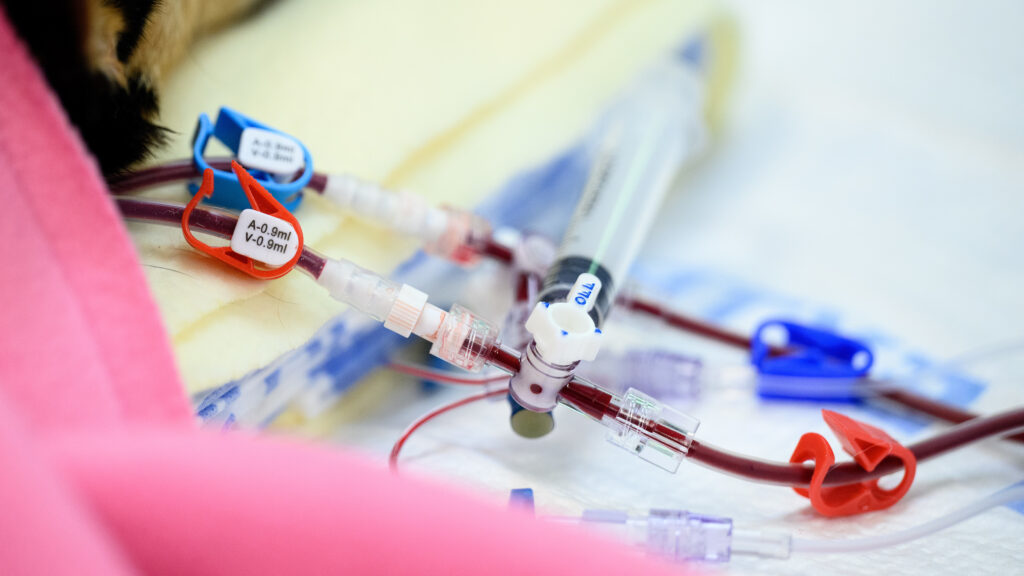
The increased investment in nephrology and urology also has led to the purchase of life-changing equipment to treat clients and to help with important research into male dog incontinence.
A new bladder scan, which Kendall made the case for buying, has allowed her to conduct an ongoing study with male dogs with incontinence seen at the hospital.
“The scan measures residual urine volume after voiding, and about half the males with urinary incontinence have problems because they can’t void completely, and the other can’t store urine completely,” Kendall says. “But we didn’t even know that it was half and half until the original work we did with the new scanner.”
NC State was one of the first veterinary schools in the United States to offer focus clinics and fellowships in nephrology and urology. Focus clinics allowed Vaden and Kendall to focus their caseload on animals with disorders of the bladder and kidneys, making the way for clinical advancement. Fellowships offer advanced training in a specialized discipline, beyond what can be learned in a three-year residency program. With the increased faculty, the college now can offer training to more residents of the ACVNU.
Vaden is excited to see what’s ahead for the specialists at NC State and in the field of nephrology and urology.
“Right now I feel that the sky’s the limit on what we can eventually achieve in discovery of new knowledge and the provision of advanced clinical care for our patients with nephrologic or urologic disorders,” she says.


